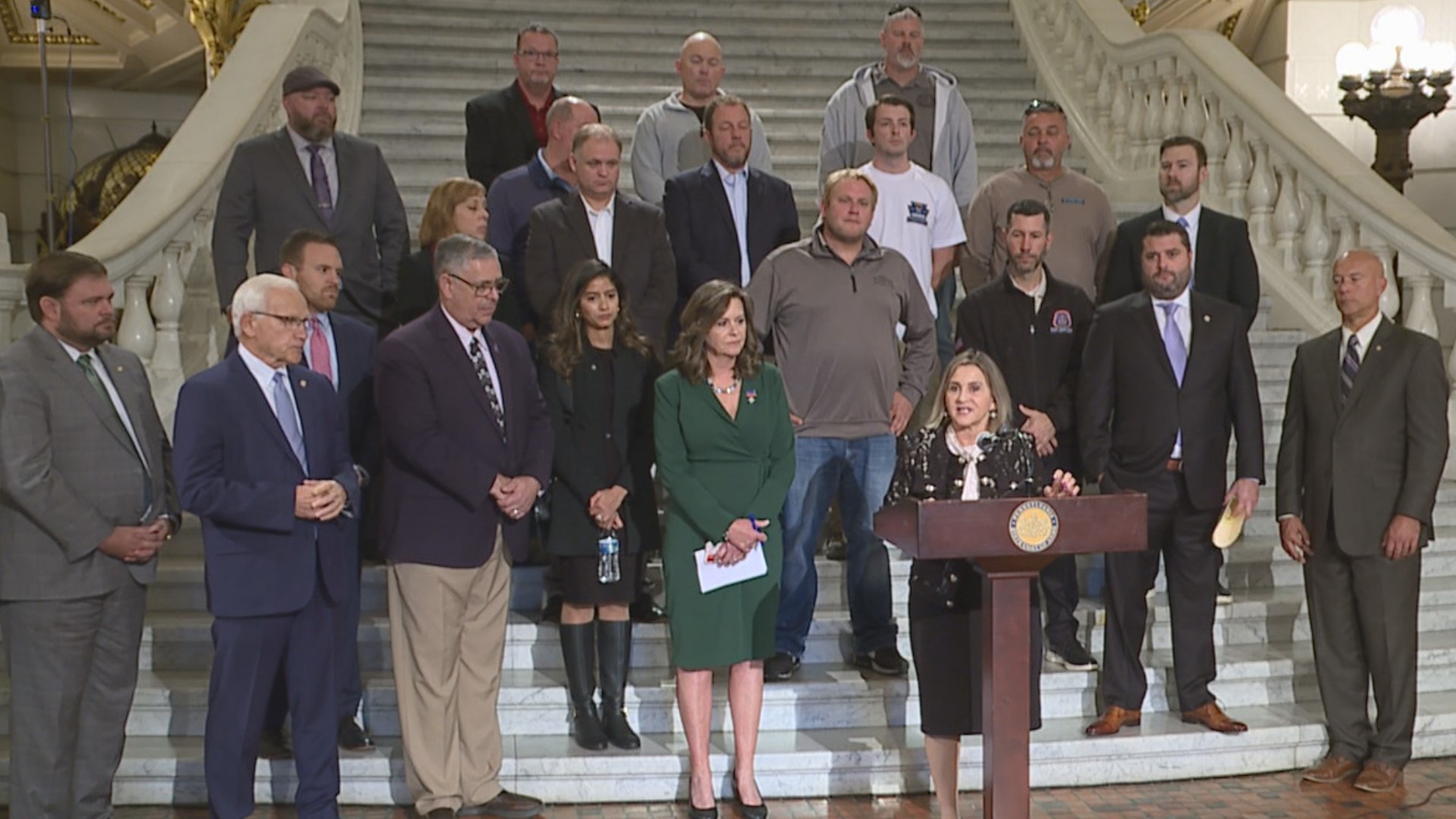DAUPHIN COUNTY, Pa. — During a visit to Pennsylvania in October, President Joe Biden announced the state would receive two hydrogen hubs in the state's southeastern and southwestern regions as part of the United States Department of Energy’s Regional Clean Hydrogen Hubs project.
The hubs are part of a seven-billion-dollar investment to produce zero or near-zero carbon emissions by using hydrogen energy. According to Pennsylvania lawmakers, the hubs are expected to receive over $1.7 billion of federal funding.
“The hubs are also expected to produce thousands of family-sustaining jobs across a number of industries,” said State Senator Camera Bartolotta (R) of District 46.
Despite the economic benefits the hubs could bring, the state is expected to continue using fossil fuels to power the hubs.
“To create hydrogen, or to capture hydrogen, really, there are multiple ways to do that. Probably the most efficient way at the moment is to use natural gas in that process,” Senator Bartolotta said.
Hydrogen energy is neither inherently renewable nor inherently clean and is often dependent on the type of energy being used. This leaves some environmentalists wondering how environmentally conscious the hubs will be.
“It is a reminder that this energy form that is often touted as ‘clean,’ hydrogen energy or the hydrogen hubs themselves, aren’t necessarily so,” said David Masur, the executive director of PennEnvironment.
Senator Bartolotta says carbon sequestration could be the answer to minimizing the environmental impacts of using natural gas.
“It’s to take the carbon emissions from productions of all kinds of energy and sequester them into the ground in a responsible and efficient way, thereby eliminating the c-0-2 exhaust into the atmosphere,” Senator Bartolotta described.
But Masur is skeptical.
“The reality is, these are really untested and not brought to scale. And when you layer in some of the technologies that are made to reduce the carbon footprint, like carbon capture and sequestration, they’re even less tested,” Masur said.
According to the Department of Energy, the Appalachian Regional Clean Hydrogen Hub (ARCH2) will leverage the region’s ample access to low-cost natural gas to produce low-cost clean hydrogen and permanently store the associated carbon emissions in areas of West Virginia, Ohio, and Pennsylvania.
The Mid-Atlantic Clean Hydrogen Hub (MACH2) plans to develop renewable hydrogen production facilities from renewable and nuclear electricity using both established and innovative electrolyzer technologies, which can help reduce costs and drive further technology adoption in Pennsylvania, Delaware, and New Jersey.

